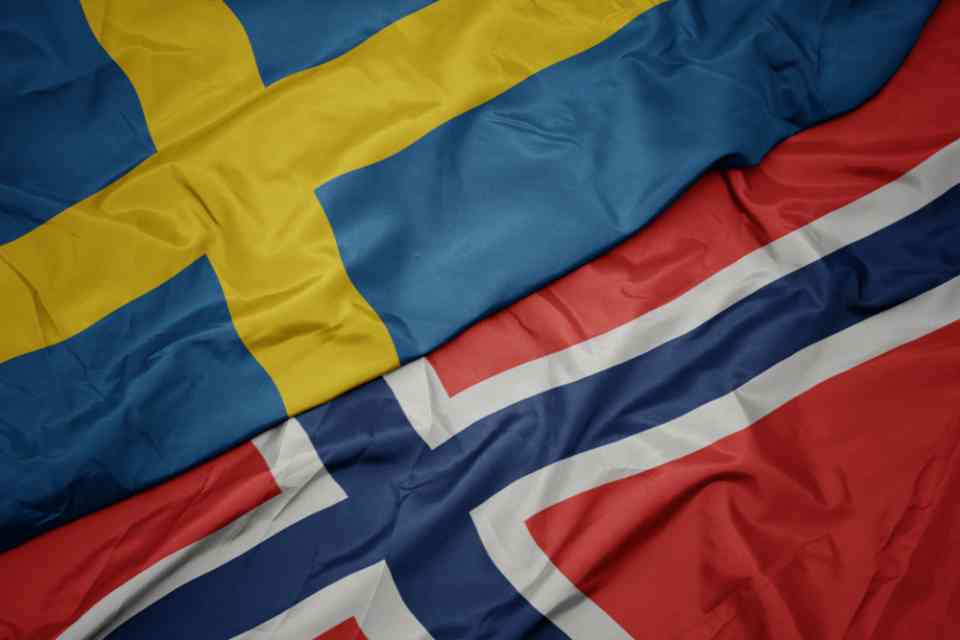Rich Nations Falling Short on Nature Finance Commitments to Poor Countries – Only Norway and Sweden Meet their Fair Share Commitments

A recent report by the Overseas Development Institute (ODI) revealed that several wealthy nations, including the UK, Canada, New Zealand, Italy, and Spain, are contributing less than half of their fair share to nature finance for poorer countries. This assessment follows the developed nations’ agreement to collectively provide a minimum of $20 billion annually for nature restoration in low and middle-income countries by 2025, on top of the $100 billion already pledged for climate finance.
According to the report, Norway and Sweden are the only countries meeting their fair share commitments, while most developed nations fall significantly short. The UK was found to be providing about 24% of its commitment, with southern and eastern European countries performing worse; Greece and Poland were contributing only about 10% and 5%, respectively. Overall, nations are falling $11.6 billion short on these financial commitments and need to “dramatically scale up,” based on the most recent data from 2021. Although some additional pledges have been made in the past three years, experts believe they do not “substantially move the needle.”
The report emphasizes that wealthy nations are largely responsible for the global loss of nature over the past 60 years. Payments to poorer countries, which generally have the largest biodiversity reserves and smaller ecological footprints, are intended to compensate for the overconsumption of natural resources by richer nations. This analysis is the first of its kind to evaluate how individual donor countries are fulfilling their financial commitments made under the 2022 Kunming-Montreal Global Biodiversity Framework (GBF) at Cop15.
Earth’s wildlife populations have declined by an average of 69% in just under 50 years, with nations repeatedly failing to meet UN targets to halt this decline. Laetitia Pettinotti, the lead author and a research fellow at ODI, expressed hope that the report would serve as a wake-up call for high-income countries to meet their obligations. Pettinotti warned that failing to meet these targets undermines the UN Convention on Biological Diversity and poses a threat to shared prosperity, livelihoods, economies, and health.
The 2022 Cop15 treaty did not specify how much each country should contribute. The report calculates the necessary contributions by considering each country’s historical impact on nature, gross national income, and population. ODI Chief Executive Sara Pantuliano stated that nations are far from reaching their goals and must significantly increase their contributions within the next year. Pantuliano also emphasized the need to assign individual responsibility to enhance accountability and transparency.
Germany, France, and Australia are close to meeting their required contributions. Some countries have made financial contributions since 2021, including 29 countries pledging $480 million annually to the Global Environment Facility, and Canada, Germany, Japan, Luxembourg, Spain, and the UK committing $32 million annually to the Global Biodiversity Framework Fund. However, these recent contributions are not expected to significantly impact the countries that are contributing less than 50% of their fair share.
The report notes that the US is not part of the GBF and did not commit to the target. If included, the US would be one of the poorest performers. Mary Robinson, the former president of Ireland, criticized wealthy nations for spending $1.8 trillion annually on subsidies for industries that harm nature, arguing that the $20 billion pledge is minimal in comparison and urging greater urgency.
World leaders are expected to review these financial commitments at Cop16 in Cali, Colombia. Dr. Nicola Ranger, the director of the Resilient Planet Finance Lab at the University of Oxford, who was not involved in the research, affirmed the robustness of the report’s findings. Ranger suggested that if the UK’s impact through global supply chains and finance for damaging sectors were fully accounted for, its share of responsibility would be even greater. She stressed that the UK needs to increase its funding by a factor of four to meet its international commitments and protect biodiversity, highlighting that it is also in the UK’s interest due to its exposure to nature-related risks.
Have you read?
Richest Billionaire Investors.
Billionaire Winners.
Billionaire Losers.
Best Business Schools.
Best Hotel Schools.
Bring the best of the CEOWORLD magazine's global journalism to audiences in the United States and around the world. - Add CEOWORLD magazine to your Google News feed.
Follow CEOWORLD magazine headlines on: Google News, LinkedIn, Twitter, and Facebook.
Copyright 2025 The CEOWORLD magazine. All rights reserved. This material (and any extract from it) must not be copied, redistributed or placed on any website, without CEOWORLD magazine' prior written consent. For media queries, please contact: info@ceoworld.biz








